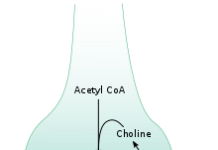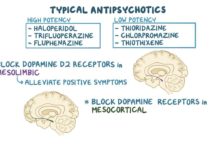These medicines relax blood vessels and lower the amount of salt and water in the body.
Angiotensin-converting enzyme inhibitors — commonly called ACE inhibitors — prevent an enzyme in your body from producing angiotensin II, a substance that causes blood vessels to narrow and increases blood pressure.
These medicines relax blood vessels and lower the amount of salt and water in the body.
ACE inhibitors used to prevent or treat:
- High blood pressure
- Heart disease, congestive heart failure, and heart attack
- Stroke
- Some kidney diseases
- Diabetes
- Scleroderma
- Migraine headache
ACE inhibitors come in a pill, and they're typically taken on an empty stomach.
In 1981, the Food and Drug Administration (FDA) approved captopril, the first ACE inhibitor.
Common ACE inhibitors
Some commonly prescribed ACE inhibitors include:
- Benazepril (Lotensin)
- Captopril (Capoten)
- Enalapril (Vasotec)
- Fosinopril (Monopril)
- Lisinopril (Zestril)
- Moexipril (Univasc)
- Perindopril (Aceon)
- Quinapril (Accupril)
- Ramipril (Altace)
- Trandolapril (Mavik)
ACE Inhibitor Side Effects
Side effects of ACE inhibitors are rare. However, you might experience:
- Dizziness or lightheadedness, especially when you first start taking the medicine or your doctor increases your dose
- Rapid heartbeat
- Headache
- Loss of appetite
- Salty or metallic taste in your mouth
- Upset stomach or diarrhea
- Fatigue
- Fever
- Numbness
- Joint pain
- Skin rash or blisters
- Dry cough
ACE Inhibitor Cough
These drugs may cause a dry cough that makes it hard for you to speak.
The ACE inhibitor cough might go away after a while, but tell your doctor if it doesn't.
Your healthcare provider may want to lower your dose, or switch you to a different medication.
It can take up to four weeks after an ACE inhibitor is stopped for a cough to resolve if it's due to the medication.
ACE Inhibitors and NSAIDs
Talk to your doctor if you frequently take non-steroidal anti-inflammatory drugs (NSAIDs) since they may make an ACE inhibitor less effective.
However, occasional use of an NSAID, such as ibuprofen and naproxen, doesn't appear to be a problem for most people.
ACE Inhibitors and Pregnancy
ACE inhibitors can cause birth defects, so you shouldn't take these medicines if you're pregnant or might become pregnant.
Enalapril and captopril have been found in breast milk, but no studies have shown either drug is harmful to breastfeeding infants.
If you're breastfeeding, talk to your doctor about the benefits and risks of taking an ACE inhibitor before you begin using the drug.


Editorial Sources and Fact-Checking
- ACE Inhibitors, MedlinePlus, National Institutes of Health
- Angiotensin-Converting Enzyme (ACE) Inhibitors, Texas Heart Institute
- Angiotensin-Converting Enzyme (ACE) Inhibitors, Mayo Clinic
- From Snake Venom to ACE Inhibitor — The Discovery and Rise of Captopril, https://www.pharmaceutical-journal.com/news-and-analysis/news/from-snake-venom-to-ace-inhibitor-the-discovery-and-rise-of-captopril/10884359.article











































